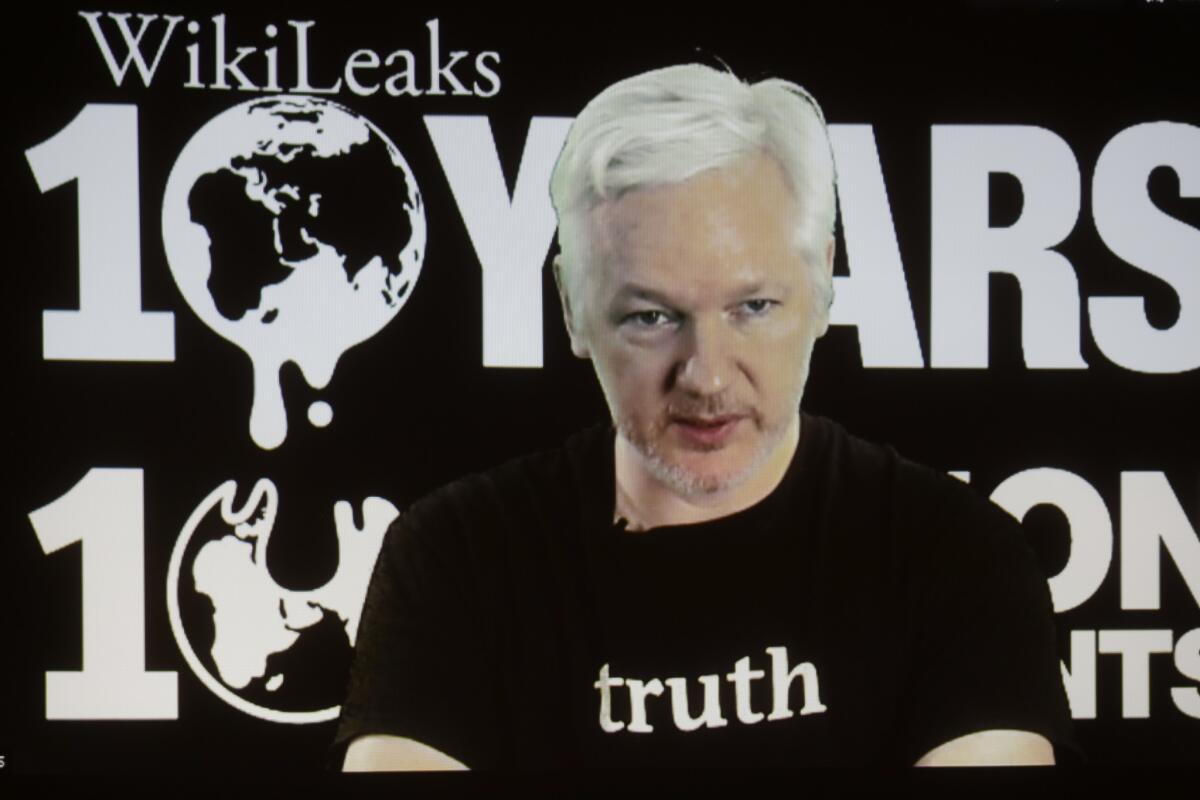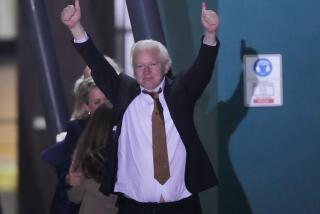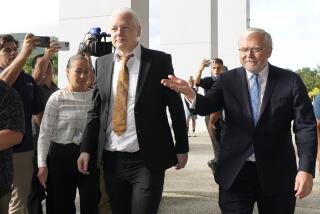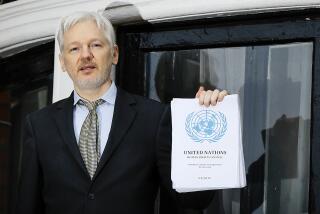Assange denied request to sit next to his lawyers as first phase of extradition hearing ends

- Share via
LONDON — The extradition hearing for WikiLeaks founder Julian Assange adjourned Thursday to give lawyers more time to gather evidence before returning to court in May.
After four days of legal arguments, both sides wrapped up their submissions at London’s Woolwich Crown Court to prepare for a three-week hearing with witnesses.
On Thursday, lawyers for the Australian citizen sought to drive home the point that their client was being charged with a political offense and should be protected from extradition to the U.S., where he faces 18 charges, including hacking into a Pentagon computer.
Lawyer Edward Fitzgerald argued that the 2010 release of thousands of classified documents and diplomatic cables, including the video of a 2007 Apache helicopter strike in Iraq that killed civilians and two Reuters news staffers, exposed U.S. war crimes.
“What other purpose could there be … than to show that war was being waged in a way that conflicted with fundamental human rights?” Fitzgerald said.
The U.S. government’s desire to prosecute Assange is therefore political in nature and his extradition should be blocked, the lawyer said.
Lawyers for the U.S. government countered that the charges within the indictment do not come “within a million miles” of that definition. Instead, Assange’s actions amount to common criminality as well as recklessness for failing to redact sources’ names, they said.
Throughout the four days, Assange visibly struggled to follow proceedings because of poor acoustics in the courtroom and fatigue. His lawyers say he is on medication and mentally vulnerable.
Assange, 48, sat in the dock at the rear of the court behind thick glass, looking only at the backs of the lawyers’ heads. He repeatedly complained he was a mere spectator in his own extradition hearing and unable to easily give instruction to members of his legal team or speak to them without being overheard. He was given headphones Thursday but said they did not help him hear, and removed them.
On Thursday, his lawyers asked Judge Vanessa Baraitser to allow Assange to sit beside them when the case resumes, as is common in U.S. courtrooms. They said his right to a fair trial was in jeopardy. The judge refused, saying he can request frequent breaks “every hour if need be” to meet his lawyers in private, but he cannot leave the secure dock.
In May, Assange’s lawyers intend to call as witness the former employee of a Spanish security company who says the U.S. spied on Assange inside the Ecuadorean Embassy, where he lived for seven years under political asylum. The anonymous witness will also testify that it was discussed whether Assange could be poisoned or kidnapped, his lawyer told the court.
The extradition case resumes May 18.
Boyle is a special correspondent.
More to Read
Sign up for Essential California
The most important California stories and recommendations in your inbox every morning.
You may occasionally receive promotional content from the Los Angeles Times.













